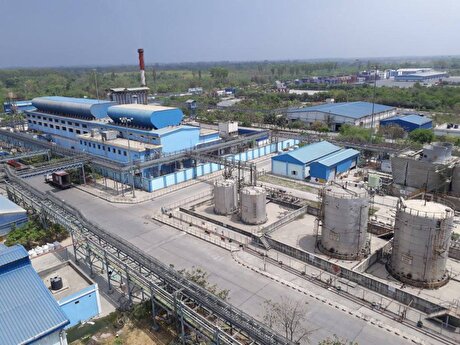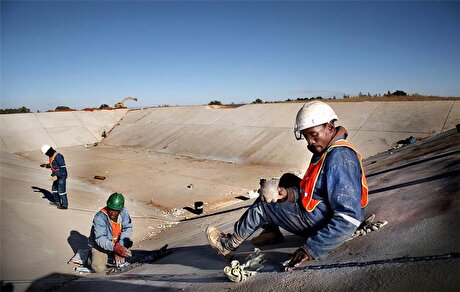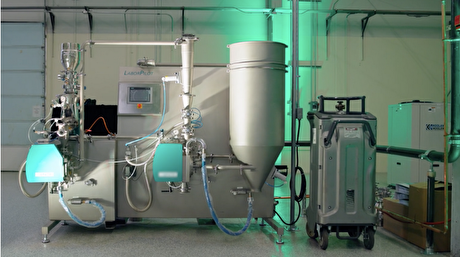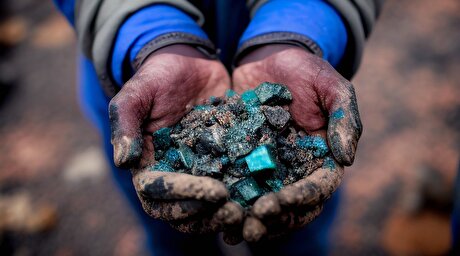
Knowledge-based firms play prominent role in indigenizing oil industry’s equipment

To materialize this objective, knowledge-based companies have played a noticeable part, especially in indigenizing the products and equipment applied in the oil industry, which is the major sector in the country’s national economy.
Cooperating with capable domestic knowledge-based companies and startups is one of the very fruitful steps that the oil ministry has taken in its efforts to reach complete independence from the foreign resources for meeting its equipment needs.
Earlier this week, an Iranian knowledge-based company announced that it has indigenized production of the safety valves for refineries.
“After two years of research and one year of field testing, we are producing a knowledge-based product with applications in the oil, gas and petrochemical industries,” Mohammad Hassan Zarnoush, the CEO of the company, said.
He added that the product blocks leakage in the oil installations and reservoirs resulted from heightened pressure and prevents fire and explosion.
Zarnoush said that the safety valves include 15 to 20 strategic parts that are designed and produced in his company, adding that 10,000 indigenized safety valves have been sold so far.
In a relevant development in November, an Iranian company announced plans to mass-produce multiphase pumps, in a bid to further increase the country’s self-sufficiency, frugality, and environmental-friendliness in the field of transporting oil and gas.
CEO of Petro Iran Development Company Sepehr Sepehri said that his company, as an upstream company in the petroleum industry, was keen on supporting domestic manufacturers and knowledge-based companies in the industry.
Petro Iran has signed a contract with the National Iranian South Oil Company (NISOC) regarding the use of Iranian-made multiphase pumps in oil fields.
Referring to Petro Iran's efforts to expand technology, innovation and ultimately commercialization and development, which include design, and production of goods and services in the field of high technologies, he said, "one of the main goals of this mission is to create value-added through the production of software and hardware, as well as the production of data-x-items required in the oil and gas industry based on state-of-the-art technologies.”
To materialize the goal of indigenizing the production of the oil industry’s equipment, the country’s Petrochemical Research and Technology Company (PRTC) has also played a very significant role in collaborating with the knowledge-based companies for working on innovative research projects for producing various equipment and base-products needed in the industry.
PRTC’s Managing Director Ali Pajouhan has recently announced that the National Petrochemical Company (NPC), in collaboration with domestic companies, is planning to indigenize the knowledge for producing nine major catalysts used in the petrochemical industries within the next two years.
However, catalysts are very expensive substances and currently, the country is spending millions of dollars every year on importing such products into the country, producing such catalysts inside the country would make a huge difference in the profitability rate of the petrochemical plants.
Iranian petrochemical industry is currently using 40 different types of catalysts which cost the industry $260 million annually.
“Currently, the knowledge for producing 16 of the mentioned 40 types has been indigenized which would save the country $105 million every year.” Ali Pajouhan said, adding that “We plan to produce over $100m worth of petrochemical catalysts annually, by the end of the Iranian calendar year of 1400 (March 20, 2022).”


Hindustan Zinc to invest $438 million to build reprocessing plant

Gold price edges up as market awaits Fed minutes, Powell speech

Glencore trader who led ill-fated battery recycling push to exit

UBS lifts 2026 gold forecasts on US macro risks

Roshel, Swebor partner to produce ballistic-grade steel in Canada

Iron ore price dips on China blast furnace cuts, US trade restrictions

Emirates Global Aluminium unit to exit Guinea after mine seized

South Africa mining lobby gives draft law feedback with concerns

EverMetal launches US-based critical metals recycling platform

Barrick’s Reko Diq in line for $410M ADB backing

Gold price gains 1% as Powell gives dovish signal

Electra converts debt, launches $30M raise to jumpstart stalled cobalt refinery

Gold boom drives rising costs for Aussie producers

Vulcan Elements enters US rare earth magnet manufacturing race

Trump raises stakes over Resolution Copper project with BHP, Rio Tinto CEOs at White House

US seeks to stockpile cobalt for first time in decades

Trump weighs using $2 billion in CHIPS Act funding for critical minerals

Nevada army depot to serve as base for first US strategic minerals stockpile

Emirates Global Aluminium unit to exit Guinea after mine seized

Barrick’s Reko Diq in line for $410M ADB backing

Gold price gains 1% as Powell gives dovish signal

Electra converts debt, launches $30M raise to jumpstart stalled cobalt refinery

Gold boom drives rising costs for Aussie producers

Vulcan Elements enters US rare earth magnet manufacturing race

US seeks to stockpile cobalt for first time in decades

Trump weighs using $2 billion in CHIPS Act funding for critical minerals

Nevada army depot to serve as base for first US strategic minerals stockpile

Tailings could meet much of US critical mineral demand – study
















